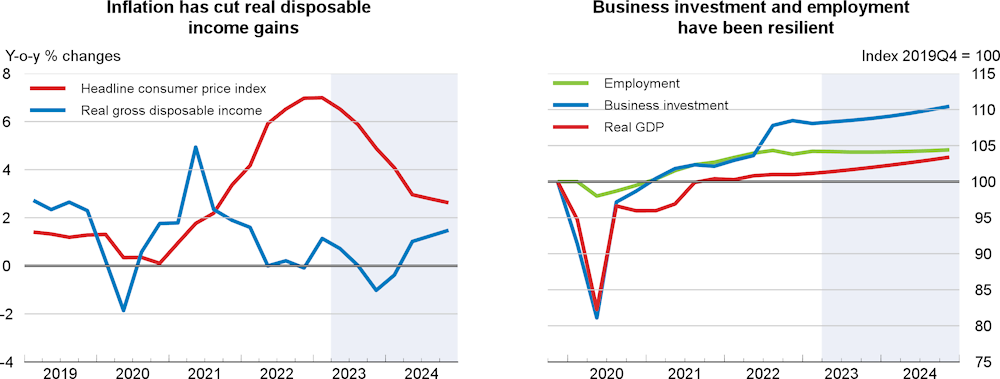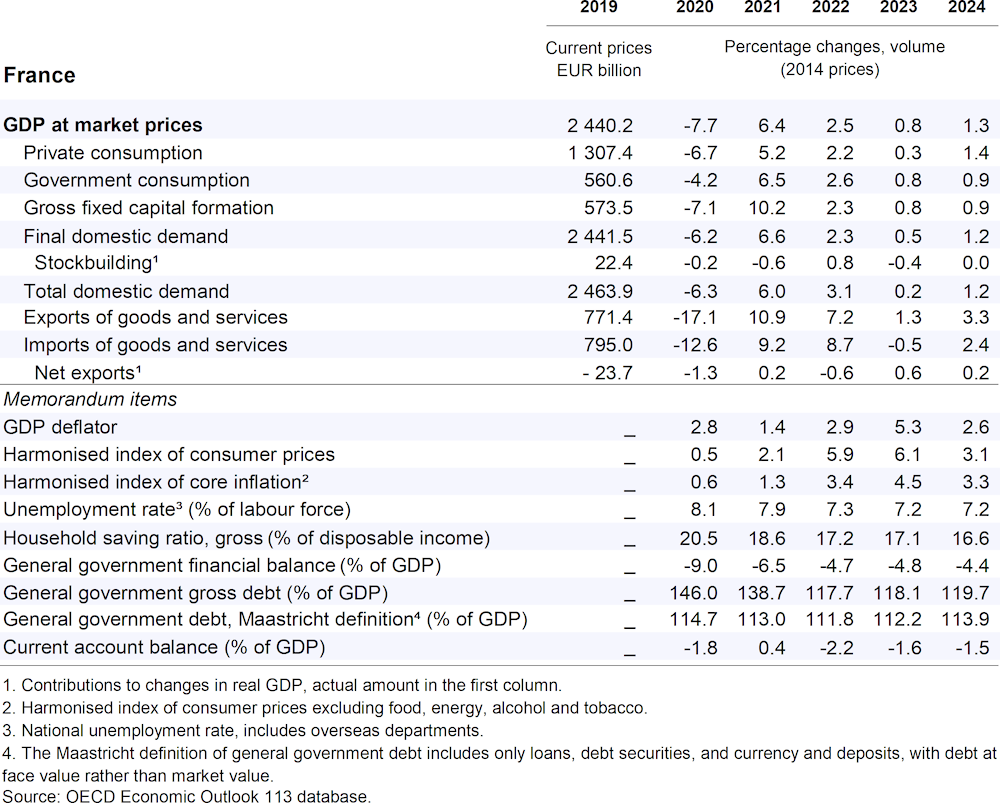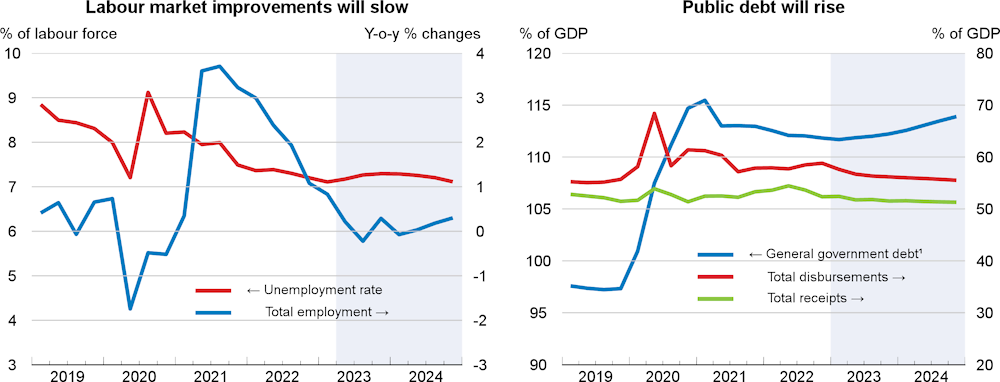Real GDP is projected to grow by 0.8% in 2023 and 1.3% in 2024. Russia’s war of aggression against Ukraine, supply chain disruptions and elevated energy prices have dented economic prospects. Inflation is expected to remain high at 6.1% in 2023 and to decline to 3.1% in 2024, lowering household purchasing power and consumption growth. Low business and household confidence, modest global growth and high uncertainty will hold back investment and exports. Wages are accelerating, owing to the strong labour market. With slowing job creation, the unemployment rate will broadly stabilise at 7.2% in 2024.
Fiscal policy will become less supportive. The combination of a temporary freeze of regulated energy prices, subsidies and cash transfers have smoothed energy price shocks. These measures are expected to be phased out by the end of 2024. As wholesale energy prices decline, it is crucial to improve the targeting of support measures to avoid impeding the green transition. Changes to unemployment insurance and the pension reform will lower public expenditure in these areas, but be partially offset by the effects of population ageing and higher interest rates, calling for improvements in spending efficiency.



